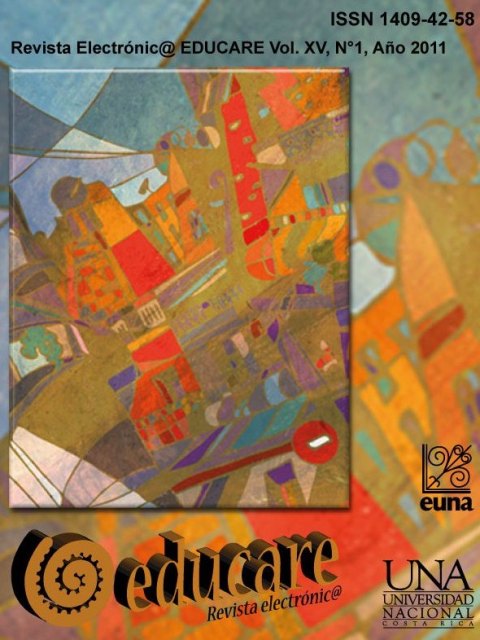Evaluation of the Academic-administrative Organization based on the Soft Systems Methodology: the Case of the Degree in Tourism
DOI:
https://doi.org/10.15359/ree.15-1.4Keywords:
Evaluation, soft systems, tourism, organizationAbstract
The goal of this study was to evaluate, through a systemic approach, the academic-administrative organization of three Bachelor´s Degree Programs in Tourism, to identify their characteristics in reference to the criteria of the Consejo para la Acreditación de la Educación Turística (CONAET, by its Spanish acronym) and Tourism Education Quality (TedQual) for the national and international certification. The questionnaire and observation guide were the tools to gather the necessary information, which was organized through a qualitative (Atlas Ti) and quantitative approach (descriptive statistics). The main conclusion was that the Bachelor´s Degree offered by the Escuela Superior de Turismo (EST, by its Spanish acronym) meets the certification criteria (the program and facilities are under the certification guidelines). In contrast, Universidad el Valle de México (UVM, by its Spanish acronym) and the Escuela Bancaria y Comercial (EBC, by its Spanish acronym) have serious deficiencies according to the criteria established by the agencies.
References
Barranco, J. (2002). Metodología del análisis estructurado de sistemas. España: Universidad
Pontificia de Comillas de Madrid.
Cardoso, E., Ramos, J. y Tejeida, R. (2009). Evaluación de los programas educativos desde la
perspectiva de los sistemas suaves: Propuesta metodológica. Revista Universidad EAFIT,
(155), 30-44.
Checkland, P. (2002). La metodología de sistemas suaves en acción. México: Noriega Editores
Mega.
Hernández, R., Fernández, C. y Baptista, P. (2002). Metodología de la investigación. México: Mc
Graw Hill.
Martínez, A. (2006). Ideas para el cambio y el aprendizaje en la organización: una perspectiva
sistémica. Bógota: ECOE.
Zexian, Y. y Xuhui, Y. (2010). A revolution in the field of systems thinking: A review of Checkland’s
system thinking [Una revolución en el campo del pensamiento sistémico: Una revisión sobre
el pensamiento sistémico de Checkland]. Wiley InterScience 2(27), 140-155. doi: 10.1002/
sres.1021
Downloads
Published
How to Cite
Issue
Section
License
1. In case the submitted paper is accepted for publication, the author(s) FREELY, COSTLESS, EXCLUSIVELY AND FOR AN INDEFINITE TERM transfer copyrights and patrimonial rights to Universidad Nacional (UNA, Costa Rica). For more details check the Originality Statement and Copyright Transfer Agreement
2. REUTILIZATION RIGHTS: UNA authorizes authors to use, for any purpose (among them selfarchiving or autoarchiving) and to publish in the Internet in any electronic site, the paper´'s final version, both approved and published (post print), as long as it is done with a non commercial purpose, does not generate derivates without previous consentment and recognizes both publisher's name and authorship.
3. The submission and possible publication of the paper in the Educare Electronic Journal is ruled by the Journal’s editorial policies, the institutional rules of Universidad Nacional and the laws of the Republic of Costa Rica. Additionally, any possible difference of opinion or future dispute shall be settled in accordance with the mechanisms of Alternative Dispute Resolution and the Costa Rican Jurisdiction.
4. In all cases, it is understood that the opinions issued are those of the authors and do not necessarily reflect the position and opinion of Educare, CIDE or Universidad Nacional, Costa Rica. It is also understood that, in the exercise of academic freedom, the authors have carried out a rogorous scientific-academic process of research, reflection and argumentation thar lays within the thematic scope of interest of the Journal.
5. The papers published by Educare Electronic Journal use a Creative Commons License:














 The articles published by Educare Electronic Journal can be shared with a Creative Commons License:
The articles published by Educare Electronic Journal can be shared with a Creative Commons License: 



